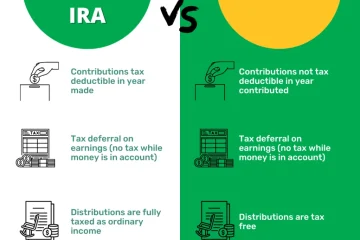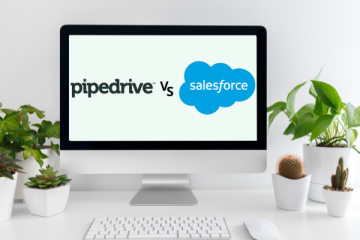This post aims to clarify the complexities of loans in personal finance and entrepreneurship. It provides essential insights for first-time borrowers, small business owners, and finance enthusiasts, covering loan types, application processes, interest rates, and alternatives to help you make informed borrowing decisions.
Discovering the Different Types of Loans
Loans come in many shapes and sizes, each tailored to meet specific needs and circumstances. Understanding the variety can help you identify which one aligns best with your goals.
Personal Loans
Personal loans are versatile and can be used for a multitude of purposes, such as consolidating debt, funding home improvements, or covering unexpected expenses. Typically unsecured, these loans don’t require collateral and are granted based on creditworthiness and income. It’s essential to shop around for competitive interest rates and understand the terms before proceeding.
Student Loans
For those pursuing higher education, student loans provide the financial support needed to cover tuition, books, and living expenses. They can be federal or private, with federal loans often offering more flexible repayment options and lower interest rates. Understanding the differences between subsidized and unsubsidized loans is vital for managing future payments effectively.
Mortgage Loans
Buying a home is a significant milestone, and mortgage loans make this possible for many. These loans usually offer lower interest rates and longer repayment terms, making homeownership more accessible. Familiarizing yourself with fixed-rate and adjustable-rate mortgages can help you choose the best option to suit your financial situation.
Business Loans
Small business owners often rely on business loans to fuel growth, purchase inventory, or manage cash flow. These loans can be secured or unsecured, with terms varying based on the lender’s assessment of the business’s financial health. Developing a solid business plan and maintaining good financial records will increase your chances of approval.
Unlocking Loan Eligibility & Factors Affecting Approval
Securing a loan hinges on several factors, and understanding these can significantly improve your chances of approval.
Credit Scores
Your credit score is a critical component in determining your loan eligibility. It reflects your creditworthiness and provides lenders with an insight into how likely you are to repay the loan. Maintaining a good credit score by paying bills on time and minimizing debts can increase your chances of securing favorable loan terms.
Income and Employment History
Lenders want assurance that you have a steady income to repay the loan. Your employment history and income level play a crucial role in the approval process. A stable job and a consistent income demonstrate reliability and financial stability, making you a more attractive candidate for loans.
Debt-to-Income Ratio
The debt-to-income (DTI) ratio is another key consideration for lenders. It compares your total monthly debt payments to your monthly income, helping lenders assess your ability to manage additional debt. Ideally, a lower DTI ratio indicates better financial health and increases your likelihood of loan approval.
Navigating the Loan Application Process
Applying for a loan can be daunting, but understanding the process can ease your concerns and set you on the right path.
Preparing the Necessary Documents
Before applying for a loan, gather essential documents such as proof of income, tax returns, bank statements, and identification. Having these documents ready can streamline the application process and demonstrate your preparedness to the lender.
Completing the Application
Filling out a loan application accurately is crucial. Provide honest and complete information, as discrepancies can delay the approval process or lead to rejection. Double-check your application for errors and ensure that all required fields are completed.
Understanding the Approval Timeline
Once your application is submitted, the waiting game begins. The approval timeline varies depending on the lender and the type of loan. While some loans offer instant approval, others may take several days or weeks for a decision. Patience and communication with your lender can help manage expectations during this period.
Decoding Interest Rates & Fees
Interest rates and fees significantly impact the total cost of your loan, making it essential to comprehend these elements.
Annual Percentage Rate (APR)
The APR represents the annual cost of borrowing, including interest and fees. Comparing APRs across different loans gives you a better understanding of the total cost and helps you choose the most affordable option.
Origination Fees
Some loans impose origination fees, which are charges for processing the loan. These fees are typically expressed as a percentage of the loan amount and can affect the overall cost. It’s crucial to factor in origination fees when comparing loan options to avoid surprises.
Prepayment Penalties
While paying off your loan early can save on interest costs, some lenders impose prepayment penalties. These fees discourage early repayment, allowing the lender to recoup potential lost interest. Understanding these penalties ensures you’re fully aware of all potential costs associated with your loan.
Mastering Debt Management & Building Credit
Once you’ve secured a loan, managing it responsibly is key to maintaining financial health and building credit.
Timely Payments
Making timely payments is crucial for maintaining a positive credit history and avoiding late fees. Setting up automatic payments or reminders can help you stay on top of due dates and prevent missed payments.
Paying More Than the Minimum
Whenever possible, pay more than the minimum required payment. This reduces the loan’s principal balance faster, saving on interest costs and shortening the repayment period.
Monitoring Your Credit
Regularly monitoring your credit report helps you identify potential errors and track your progress toward improving your credit score. Many financial institutions offer free credit monitoring services, allowing you to stay informed and proactive.
Exploring Alternatives to Traditional Loans
If traditional loans aren’t the right fit, consider alternative financing options that might better meet your needs.
Peer-to-Peer Lending
Peer-to-peer (P2P) lending platforms connect borrowers with individual investors. These platforms offer competitive interest rates and a streamlined application process, making them an attractive alternative for those who may not qualify for traditional loans.
Grants for Small Businesses
Small business owners can explore grants as a funding option. Unlike loans, grants do not need to be repaid, making them a valuable resource for businesses seeking growth opportunities. Additionally, consider partnering with a credit union like those available in Detroit for further financial support. Research available grants within your industry and prepare a compelling application to increase your chances of success.
Conclusion
Now that you have a better understanding of the loan application process, interest rates and fees, debt management, and alternative financing options, you can make informed decisions to achieve your financial goals.




